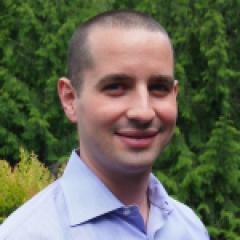LEE’s Policy Leadership Academy
A few days ago, the American Prospect posted an article titled Teach for America’s Deep Bench, by James Cersonsky. The focus of the article is Leadership for Educational Equity, a 501c4 associated with Teach for America. Cersonsky describes LEE as working “to provide resources, training, and networking for alumni who are interested in elected office or other extracurricular leadership positions.”
Barbara Miner’s 2010 Rethinking Schools article about Teach for America included a bit of information about LEE. The organization was still very young at the time and, as Miner’s encounter describes, LEE refused to take a stand on various issues. Cersonsky’s article provides some updates and contends that LEE is “training the next generation of politicians, who have very specific ideas on school reform.”
And there’s good evidence that LEE is gearing up for a more politically active role. In late June of 2012, Isabel Oregon Acosta of the Broad Foundation sent the following email to Chris Cerf (full email available here):
Hi Chris,
I wanted to reach out because I’m helping Leadership for Educational Equity (LEE) to put together their inaugural Policy Leadership Academy and wanted to extend an invitation to you to speak on a panel that will discuss human capital policy. The goal of the panel is to describe leading efforts to attract and retain excellent people in school systems and which aspects of these efforts are best accomplished through policy, as opposed to implementation or specific efforts by school leaders. LEE wants to drill down on how policymakers can best help establish the context for schools to be successful without micromanaging them. Tim Daly of TNTP is moderating the panel and Jordan Henry of NewTLA, a reform caucus of the Los Angeles teachers union will be speaking on it (a draft agenda is attached). We also just secured Jean Desravines from NLNS for the same panel.
The session is slated for Friday, July 27th, from 10:30-12pm at the CityBridge Foundation at 600 New Hampshire Avenue in Washington, DC.
As context, LEE is a new organization aimed at changing policies and laws by accelerating the leadership of Teach For America alumni. The Policy Leadership Academy is an effort to get Teach For America’s 40 senior-most alumni with an interest in policy more educated about the big questions/dilemmas in education policy. The audience will be about 60 percent candidates for local and state office and elected officials, 25 percent policy officials at the state and local level and 15 percent advocates from all over the country. The aim is to help build participants knowledge base and skill set so that they can not only get elected, but be effective in working to close the achievement gap once in leadership roles.
Do you think it might work for you to be in DC on the morning of July 27th? I think your perspective would beinvaluable.
Best,
Isabel Oregon Acosta
Assistant Director
[The Broad Foundation - Education]
The contents of the email was released through an OPRA request filed in the state of New Jersey. The email was released because it contains communication between a representative of the Broad Foundation and Commissioner Cerf.
Included in the communication is a draft for the three day Leadership Policy Academy. A few notes about the draft agenda:
- According to a LAUSD teacher cited in Cersonsky’s article, LEE was working to “strategically promote folks who have a different politics,” including NewTLA. I’m not sure including NewTLA in the Policy Leadership Academy qualifies as “promoting” NewTLA, but LEE is certainly including the group in discussions.
- The Broad Foundation was clearly helping LEE get this work started. The event was held at the CityBridge Foundation, another education-related philanthropy. The Gates Foundation paid for the “School Budget Hold ‘Em” described in the draft schedule.
- Education Resource Strategies posted about attending the event. An accompanying slideshow about the “School Budget Hold ‘Em” could be something that indicates preferred policies (e.g. merit pay, ignoring reductions in class size in favor of other policies, shifting special education funding, reducing labor costs)
Do keep in mind that things may have changed; this was only a draft of the agenda. Regardless, it provides some evidence of how LEE is networking with other education-related organizations and the kinds of policies or reforms favored by the group.
This blog post has been shared by permission from the author.
Readers wishing to comment on the content are encouraged to do so via the link to the original post.
Find the original post here:
The views expressed by the blogger are not necessarily those of NEPC.
